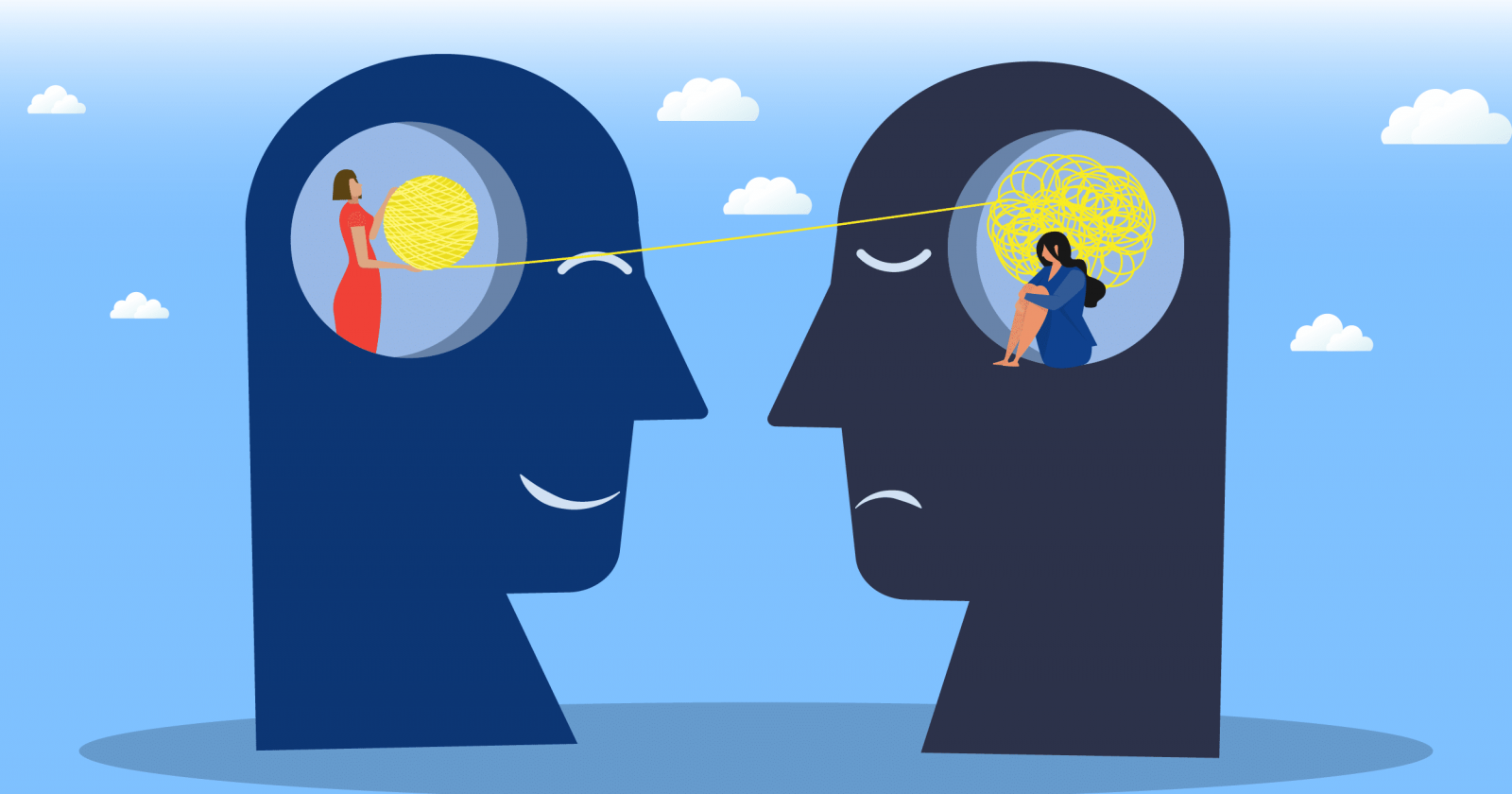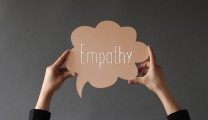In the context of EQ however, empathy is best understood when broken into three entities. They include:
- Empathy Accuracy
- Empathy Compassion
- Empathic Acknowledgment
If you’re able to hone and develop each of these, you’ll not only greatly increase your happiness, job satisfaction and professional success, but you’ll strengthen your relationships and have more influence amongst friends and colleagues.
#1: Empathy Accuracy
I’ve you’ve ever been in a meeting or walked away from a conversation and said to yourself: ‘I know what that person was thinking, feeling and wanting’, it’s likely you’re empathy accuracy is fairly developed.
This is the ability to read others. It’s the ability to tap into a situation, a person or a conversation and inherently know what’s going on and it’s one of the greatest gifts you can have.
If you’re truly in tune to what’s going on in someone else’s mind and heart, you can navigate a conversation, manage situations, enhance communication and avoid unnecessary conflict.
A question I repeatedly get from clients when talking about empathy accuracy is whether or not this is a skill that can be learned. And like everything when it comes to EQ, this is a quality that can definitely be honed and developed.

Learning to Read a Room
Developing empathy accuracy is surprisingly one of the easiest areas to build upon when it comes to EQ. For most people the reason they’re not reading people as well as they could is because they’re too focused on themselves and not enough on the ‘other’.
Does this mean everyone who’s not ‘empathy accuracy ept’ is narcissistic? Not at all. What it can mean though, is that there’s a big chance we’re getting too caught up in our own thoughts and inside our own heads.
If you think about it, how often do you:
- Find yourself in a conversation where you’ve zoned out and start nodding and smiling only because you’re completely lost?
- Find yourself in a meeting or talking to a friend, thinking about what you have to do when you get home, plans for the weekend or a pending project at work?
We all do it. The difference between those with a more developed empathy accuracy, is that they’re able to get out of their heads and focus on the other. They’re tuned into what’s going on outside of themselves and this is an instant leg up when it comes to reading a situation.
So what does it take to get out of our heads? Ask questions.
It’s the simplest answer yet it creates incredible change. If you ask questions what you’re doing is forcing yourself to focus outwardly. You’re creating an external dialogue and you’re actively engaging with those around you.
This instantly allows you to see the other person and entire situations in a new light. You’ll pick up on body language, facial ticks and fluctuation in tone and in interactions between people thus being able to help you read between the lines.
#2: Empathy Compassion
This is the ability to put yourself in someone else’s shoes. Usually people who score high on emotional intelligence tests when it comes to feelings of love, also rank high on empathy compassion. It means that you can understand where someone else is coming from and it also signifies that when you’re challenged or in a tough situation, you don’t easily shut down.
On the other hand, if you’re someone who generally retreats, closes off or doesn’t want to ‘deal with it’, then this might be an area for further development. Additionally if you’ve ever been told that you’re aloof, cold or indifferent it could also reflect a lower empathy compassion.
This doesn’t mean that you’re an insensitive person it just says that when you’re challenged, you’re not necessarily running towards the person involved in order to fix it.
What does it take to step into someone else’s shoes?
This brings us back to part one where we discussed self-reflection. The best way to develop your empathy compassion is to first, recognize your triggers. Take note of when you find yourself shutting off or when people tell you that you seem detached.
By recognizing these moments you’re then able to consciously decide how you want to deal with them. More often than not we don’t mean to come off as remote or out of touch, yet because we’re not in tune with what we’re feeling our actions might reflect something that we don’t want to convey.
So take a minute, step back and take stock of when you feel yourself disconnecting and then see if that’s what you’re intending to do or if it’s just become your default reaction and is actually something you’d like to change.

#3: Empathic Acknowledgment
This is a personal favourite and it’s because only a reported two percent of the population does it. Empathic acknowledgment is the process of interacting in an empathic manner. It’s the ability to take ourselves out of the conversation and truly listen to what the other is saying.
It’s not about being helpful it’s about being present and it’s been said that when we’re able to do this properly it’s the equivalent of giving a psychological hug.
Think about the last time a friend or colleague came to you with a problem.
What did you do? Did you offer advice? Try to solve it for them? This would be the natural reaction – everyone does it (well at least 98 percent of us).
Empathic acknowledgment challenges us to listen differently. It asks us to do two things:
- Listen to what the other is saying
- Acknowledge what was said, including stating your understanding of what was expressed and the feelings associated with it.
And that’s it.
Most of us when listening to a person speak find it difficult to wait. How often are you ready to jump in with advice when a friend’s pouring his or her heart out, even before they’ve finished the sentence?
Empathic acknowledgment is one of the most important skills to develop because so few people are able to do it. If you can hone this trait you’ll differentiate yourself from others and people will walk away from conversations and interactions with you feeling on top of the world. And all you’re doing is listening to them – listening actively, listening genuinely and listening with the intent to understand and not to reply.
Often when we’re in a conversation we’ll get stuck on some clever thing we want to respond with and it usually has nothing to do with what the person is saying or doesn’t reflect that we’ve been listening to the entire conversation.
We need to start ‘letting it pass’. Let those ideas flow in and flow out of our minds with the priority being to simply listen to what the other is saying.
The steps to developing our empathy aren’t necessarily that hard, they just take time and the desire to be in tune with ourselves.
So to continue challenging you, I’ll leave you with an empathy challenge.
Pick one of the three types of empathy above, an area where you feel you could perhaps enhance and choose ONE small thing to start doing today.
Whether it’s asking more questions, writing down your triggers, or saying less in conversations, decide on one and start tackling it. Then let us know how it went.












Replies to This Discussion